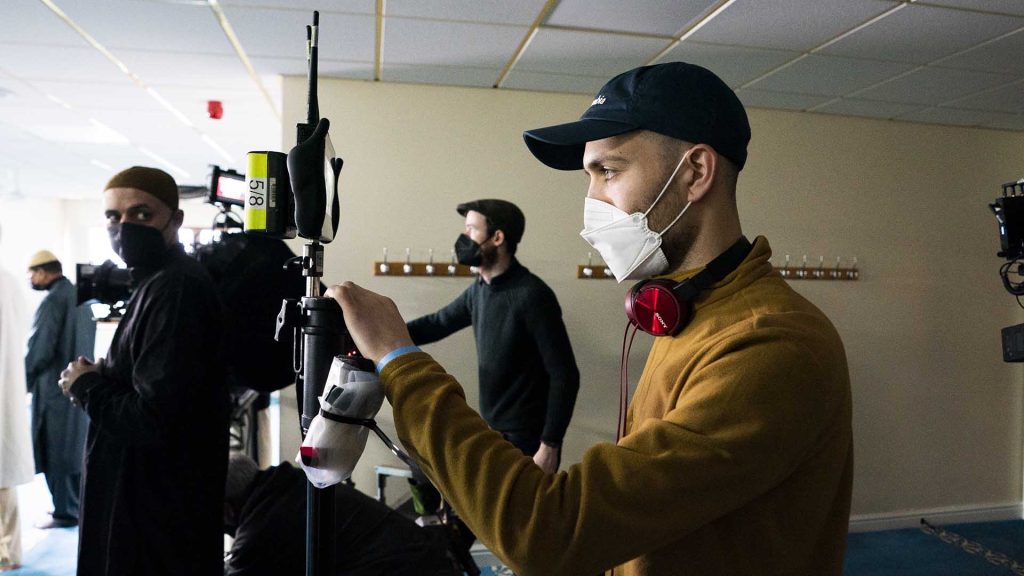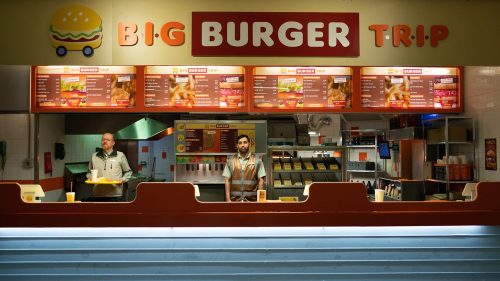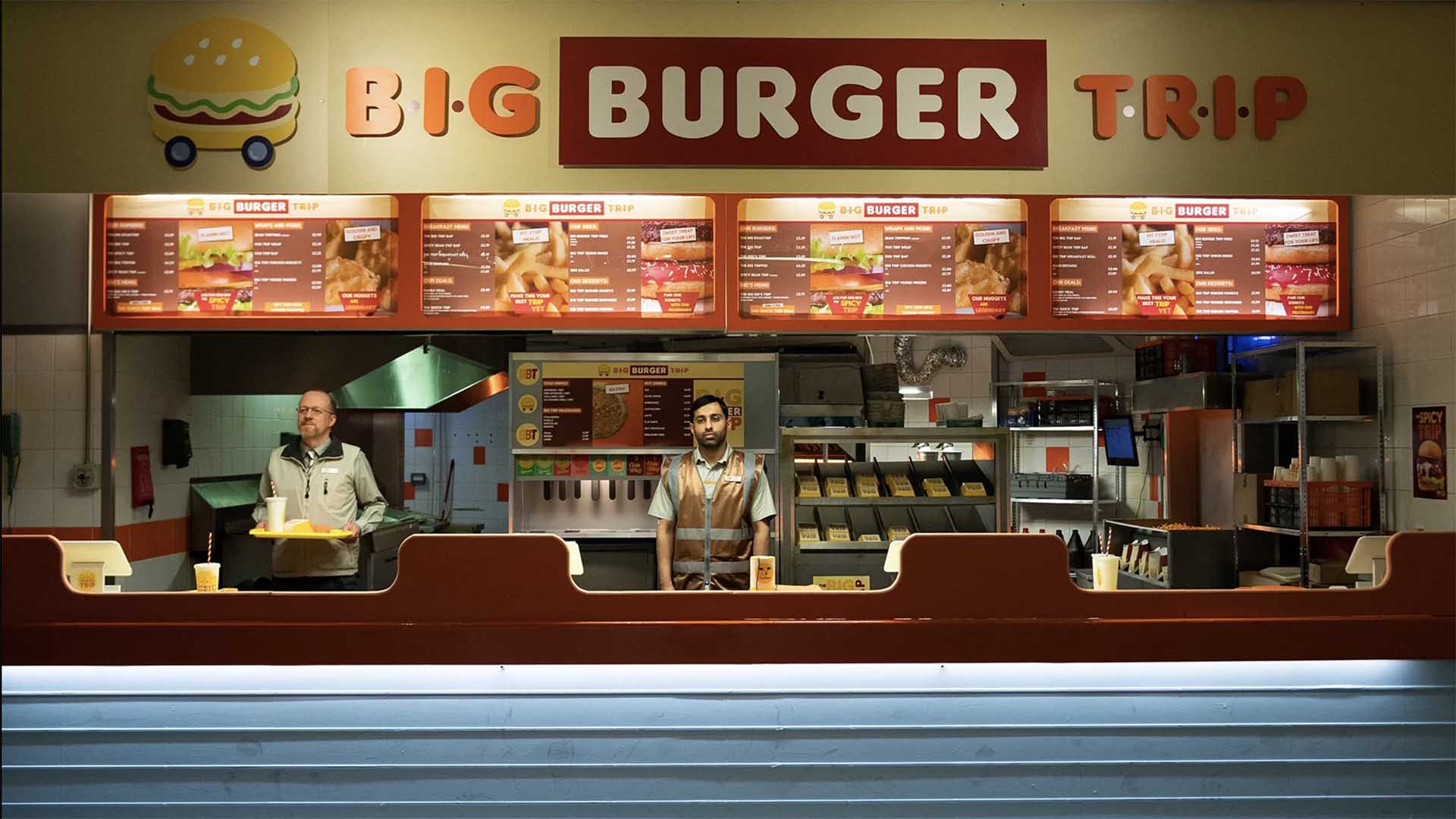
British director Moin Hussain is in Venice with his debut feature film Sky Peals, a story on detachment, on being so far removed from one’s supposed home that one wonders: how is it at all possible that I belong here? Do I even come from this planet?
Adam is obviously bad at expressing himself. How can you tell a story of someone who won’t? Someone who is so reluctant to bare it all out?
Adam is a challenging protagonist, yes, people picked that up a lot. That’s what intrigues me about him, though, what draws me to him. He isn’t a person who communicates well, or emotes, or gives much away. The process of him slowly opening up at himself and at the world is the story I am showing. That’s what Adam has been trying to do all along, too. Film is not only dialogue, anyway. There are many other aspects of filmmaking, and I will be using all of them to push the story forward. There’s the soundscape, the music, the way the film looks – all convey something.

The film, written and directed by Moin Hussain, is a sci-fi-adjacent, mystery story of the search for a missing father. Adam works nights at a petrol station. His life is modest and lonely. When he learns of the death of his father, he wants answers. He learns that the father ...
If Adam were a Christian, his yearning for a father might be explained away. Does the fact that he is Muslim make him second-guess himself? His travelling to a Church and the figure of Tara, an accepting mother, seem to belong in this perspective. Did Adam, the first man, know his father?
There are both intentional and unintentional elements in the film, and it is not my goal for there to be one reading of the film and exclude all others. It’s interesting that some may take that away from the film. There is a lot to do with life and death, and what comes before and after them. Adam is not a religious person. We might see him as a Muslim because his father was, but his mother’s English, so he’s sort of in between cultures, which is another point of interest in his personality. It relates to my own experience, too. Adam is scratching around trying to work out how he can fit between things, which I guess is the whole point of the movie. Obviously, there is going to be some religious symbolism. I did want to make at least two scenes, one at a mosque and one at a church, to explore the world that he lived in, which isn’t easy to categorize. What place can Adam call home? I guess he has a home, but he sort of ends up losing it. Adam is the biblical first man, that’s what drew me to the name. My Adam feels like he’s the first of his kind, as revealed in the movie. There are different levels and different possible interpretations of the movie, yes, but to me, it is a quite simple story. It is a story of alienation and missed connection in a very human sense. I hope it says something about what it means to be human when you take a slightly different route than most.

You are making your feature debut at Venice. What kind of presence are you aiming for in the filmmaking world?
I try not to think about that much. At this point, I cannot control how the film will be received. Worrying too much about what my place in the industry is going to be would be taking away energy from the actual work and my actual goal, which is making the next movie, and then the next and the one after that. I am the kind of person who believes in always moving forward, one step at a time. I am open to different things. Were I asked if I wanted to make the next blockbuster or a beautiful art film, I guess I’ll want to do both, if that’s even possible. I think my place as a filmmaker is just slightly off the beaten track of mainstream audience. Though again, I tend not to think about that too much, and just go towards what interests me.